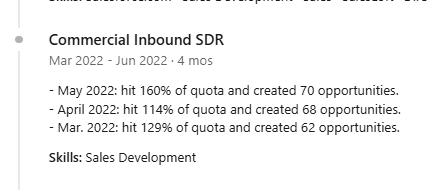How Slow Thinking Leads to Fast Results
My sales experience taught me that slowing down and thinking is the path to fast results.
In software sales, I desperately wanted to “go fast” by trying new strategies weekly (or daily) to hit and exceed my quota. I burned out and was flabbergasted that sales reps who stuck to their same boring workloads were getting better results. I was going fast, but my results were slowing.
However, after slowing down, observing these sales reps, and thinking, I realized two things:
Daily, obvious tasks often move the needle more than the latest fad.
Switching tasks too often makes it impossible to get good at any task.
I decided to change. Instead of switching tasks, I stuck to doing the same things daily—using the same script to cold-call fifty leads, emailing two hundred and fifty people, etc. I even took my conclusions to their logical extreme, deleting pointless meetings and ignoring distracting strategies upper management would beg the sales reps to adopt.
What happened? I flourished:
Slowing down and thinking is important because it gives you the mental breathing room necessary to apply your reason to locating faulty premises behind your behaviors and emotions.
For example, when I listened to recordings of new sales reps’ phone calls the way they said something to a prospect sometimes irked me, but I couldn’t put my finger on what was wrong. I didn’t just impulsively conclude, “I feel this is wrong, so therefore it is.” or “Although this feels wrong, I’ll just ignore my feelings.” Rather, I asked, “Why do I feel this way?” or “What idea do I believe that is making me feel this way?” Sometimes, I would realize I had no good reason to feel this way. Other times, when I checked what the sales rep said against my sales principles, my mind would yield an explicit reason why I felt wrong—perhaps the sales rep rambled on for too long. As long as I knew that my sales principles were true, I could say that I knew why what that new sales rep said was wrong.
Your life is only so long. There are countless things you could do—but you can’t. What helped me win in sales was using my reason. In practice, this meant staring the facts dead in the face (including the fact of my feelings), accepting them as they are, slowing down and thinking about them, following those facts to their logical conclusion, and then doing what my conclusions demanded (despite my feelings—which could catch up to my logical conclusions later).
If you want to “go fast” in any area, you must slow down enough to fully apply your reason to the problems slowing you down. And, you mustn’t treat your emotions as a means to knowledge or something to be avoided. There’s no other way.






